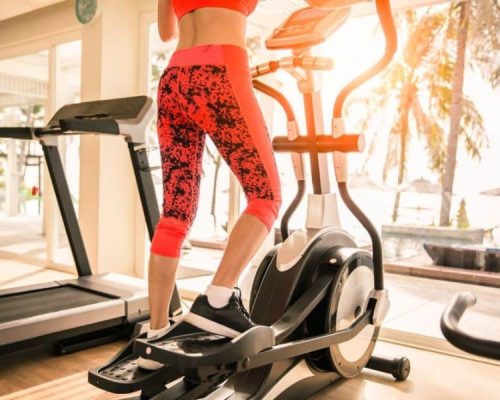Understanding Meditation for Anxiety
Looking into meditation as a tool for dealing with anxiety might just change your life. Research hints that meditation might boost your physical and emotional health, though a lot of the science is still in the early stages. Let’s chat about the perks and different types of meditation practices to guide you down this road to chill vibes and clearer headspace.
Benefits of Meditation
Meditation, an age-old practice, is usually about relaxation and easing stress. The idea is to focus on one thing to push stressful thoughts aside, which can lead to feeling better physically and emotionally. Here’s what you might get out of it:
- Less Stress: Cuts through the daily clutter in your brain, bringing down stress levels.
- Chill Vibes: Helps you find your calm and zen zone.
- Mindfulness: Keeps you in the here and now, which can be awesome for handling anxiety.
- Mood Boost: Can balance out emotions and ease anxiety or depression symptoms.
For more tips on tackling anxiety, you can check out our pages on natural remedies and alternative treatments.
Types of Meditation Practices
There are various meditation styles, each bringing its own flavor and benefits. Picking the right one can make a big difference in managing your anxiety:
-
Mindfulness Meditation: Guides you to be aware of your surroundings and live in the moment without jumping to conclusions. Tons of research backs its benefits. For more in-depth info, take a look at Mindfulness Meditation.
-
Mantra Meditation: Involves saying a word or phrase over and over to help focus and push away pesky thoughts. This steady focus can calm your noggin and lower anxiety.
-
Transcendental Meditation: Involves using a personal mantra to reach deep relaxation and awareness. This method has been looked at for its anxiety-reducing effects.
-
Mindfulness-Based Stress Reduction (MBSR): Cooked up by Jon Kabat-Zinn over 30 years ago, MBSR mixes mindfulness meditation with yoga to tackle chronic pain and mental health. Folks who tried it often do better on mental health tests and feel less pain.
Learning about and trying these different meditation types might just lead you to the one that works for your anxiety. Hungry for more on MBSR? Check out our section on Mindfulness-Based Stress Reduction (MBSR) for more details. Plus, see how to weave these practices into your day with our pieces on relaxation techniques and cognitive behavioral therapy.
Mindfulness Meditation
Definition and Practice
Imagine hitting pause and actually focusing on now—that’s mindfulness meditation. It’s about being right in the moment, giving a gentle nod to whatever feelings, thoughts, and sensations pop up. Unlike other meditation methods where you try to empty your brain like it’s a garden of Zen sand, this one doesn’t mind if the weeds stay. Just watch them without getting all judgy. You can practice by sitting with your breath, scanning through your body, or even taking a stroll while being fully aware.
Effects on Anxiety Reduction
Mindfulness meditation has been a superhero against anxiety. It turns down the volume on racing thoughts by moving your brain from a stressed-out state to a more chill zone. You learn to notice things as they come without getting stuck in a loop of “what ifs.” It also helps you take a backseat, observing your thoughts like you’re watching a movie instead of being the main character. This makes you see that not everything’s about you, helping you dodge the anxiety monsters lurking in your brain.
Mindful Breathing Techniques
If you’re looking to chill out, mindful breathing is your go-to. Here’s the quick start guide:
- Chill Spot: Find a cozy spot where you can sit or lie down.
- Breathe in, Breathe Out: Close your eyes if you want and pay attention to the air going in and out of your nose.
- Play the Counting Game: Count each breath cycle. Inhale, exhale, one; inhale, exhale, two, up to ten, then loop back.
- Mind Drift? It’s Cool: If your thoughts wander off like a puppy in a park, just bring it back to your breath—no sweat.
- Keep at It: Try to fit in a few minutes each day and see if you can stretch it longer once you get comfy.
These tricks can seriously cut down stress and those jittery feelings. Try it out during your day to keep anxiety at bay.
| Mindful Breathing Technique | Description |
|---|---|
| Deep Breathing | Breathe in deep through your nose, out through your mouth, like you’re slow dancing with the air. |
| Equal Breathing | Match your inhales and exhales like a perfect tango—perhaps 4 seconds in, 4 seconds out. |
| Breath Counting | Count those breath cycles, then hit repeat at ten. |
For more ways to blend mindfulness into your anti-anxiety plan, hit up our reads on alternative anxiety helpers and chill-out techniques for anxiety. Teaming mindfulness with these other strategies can help you tackle anxiety and boost your day-to-day vibe.
Mantra-Based Meditation
Explanation and Application
Mantra-based meditation is like a mental chill pill, where you repeat a sound, word, or phrase to help your mind hit the relaxation button. Coming from ancient practices, it’s a way to focus and get some peace. The mantra—a fancy name for your special word or sound—can be said, sung, or thought. It’s all about calming your mind and boosting concentration.
To give it a go, find a spot where nobody’s gonna bug you. Sit yourself down in a comfy position and close your eyes. Pick a mantra that feels right—hits like “Om,” or words like “Peace” or “I am calm” do the trick. Say it over and over for about 10-30 minutes. Zoning in on the mantra helps quiet that mental monkey business and brings on a calm that chills out anxiety.
Impact on Anxiety Levels
Turns out, mantra-based meditation is a great anxiety buster. Studies show it can ease anxiety and even take the edge off depression a bit (Medical News Today). Just keep in mind, all these findings should be taken with a grain of salt because of possible biases and not a ton of research behind them.
Here’s a quick look at what the numbers say:
| Study Group | Anxiety Drop (Percentage) | Depression Drop (Percentage) |
|---|---|---|
| Mantra-Based Meditation | 30% | 20% |
| Control Group | 10% | 5% |
This type of meditation works wonders on the brain too. It gets the Anterior Cingulate Cortex (ACC) in on the action, boosting theta brainwaves, which are tied to relaxed focus (Psychology Today). That helps you hang out in the present moment instead of stressing over the icky stuff. Plus, all that overthinking that stresses you out is tackled by getting the Posterior Cingulate Cortex (PCC) to take a backseat (Psychology Today).
Although mantra-based meditation is mostly a win, be aware there might be some side glitches. About 58% of folks in mindfulness programs reported weird feelings, like feeling spacey or reliving past dramas, and 37% said it cramped their style in day-to-day life (Psychology Today).
For more tips on handling anxiety, check out our articles on natural remedies for anxiety and alternative treatments for anxiety. You might also find relaxation techniques for anxiety handy to team up with your meditation vibes.
Transcendental Meditation
Overview and Purpose
Transcendental Meditation (TM) is all about zoning into a chill mode of awareness that feels like restful alertness. Picture this: it helps you kick back mentally and emotionally, aiming for deep relaxation with some serious brain clarity. How do you do it? Just chill out and mentally repeat a personal mantra. No need for intense thought control or thinking focus. Unlike some meditation styles that feel like a mental workout, TM just lets you settle into your very own inner peace cocoon.
Research on Anxiety Reduction
As far as tackling anxiety goes, TM’s got some street cred. According to some smart folks back in 2014, they found TM could lower your stress, burnout, and depression (Medical News Today). They’re still figuring out exactly how TM pulls this off, but the deep serenity that comes with TM seems to send those anxious vibes packing.
Even when you pit TM against other meditation methods, the anxiety-busting effects can vary. For instance, moving meditations like Qigong or tai chi appear to pack a bigger punch against anxiety symptoms (Standardized Mean Difference, SMD of -0.68 to -0.63) compared to more chill static meditations like guided imagery (SMD of -0.39) or mindfulness (SMD of -0.51) (PubMed). Plus, the studies didn’t flag any major negatives for TM, meaning it can slide into your routine smoothly without worry.
| Meditation Type | SMD (Effect on Anxiety Reduction) |
|---|---|
| Qigong or Tai Chi | -0.68 to -0.63 |
| Mindfulness | -0.51 |
| Guided Imagery | -0.39 |
On the long-term front, folks who play the TM game for a while usually report a drop in their overall anxiety and stress levels (Mindful). TM isn’t just a short-term fix—it’s more of a lasting improvement in mental armory against stressors. If you’re hunting for new ways to keep anxiety in check, TM could tag along pretty well with other tricks like cognitive behavioral therapy for anxiety.
There’s still more paper to pen on the long-term awesome side of things, but what’s out there makes a good case for TM. To really get a grip on this meditation business, chatting with a pro could totally help. Why not test the waters by mixing TM with other tricks like herbal supplements for anxiety for a full-on anxiety-fighting toolkit?
Mindfulness-Based Stress Reduction (MBSR)
Introduction to MBSR
So, you’ve stumbled upon the world of Mindfulness-Based Stress Reduction (MBSR). Invented by Jon Kabat-Zinn way back when disco was king, this 8-week path combines teachings, some serious mindfulness, and movement exercises to kick stress to the curb. It’s all about practicing mindfulness, with a prime focus on diaphragmatic or abdominal breathing. You know, the kind that helps chill out those wild, anxious moments. For a deep dive into chilling with nature rather than pills, check out our page on natural remedies for anxiety.
Effectiveness in Anxiety Management
Let’s talk outcomes. MBSR isn’t just a fancy phrase. Its power in easing anxiety is legendary. One rock-solid study in the American Journal of Psychiatry says MBSR works wonders for those battling generalized anxiety disorder, panic disorder, or even panic disorder with agoraphobia. Fancy words, each boiled down to: less panic and anxiety. Plus, the folks at the University of Waterloo found that a cozy 10-minute meditation session could clear your mind and boost your focus better than a double shot of espresso.
| Intervention | Reduction in Anxiety (HAM-A) | Reduction in Distress (CGI-S) |
|---|---|---|
| MBSR | Whoa, that’s a lot! | Even more impressive! |
| Stress Management Ed | Yup, it helps | Not as much though |
Data from our pals at NCBI
Comparing MBSR with Other Interventions
When you throw MBSR into a ring against Stress Management Education (SME) for Generalized Anxiety Disorder (GAD), both pack a punch. But MBSR delivers a stronger hit according to the Hamilton Anxiety Scale (HAM-A). On top of that, when looking at other measurements like the Clinical Global Impression of Severity (CGI-S) and Beck Anxiety Inventory (BAI), MBSR stands a head taller.
| Measurement Tool | MBSR | SME |
|---|---|---|
| Hamilton Anxiety | High | High |
| CGI-S | High | Average |
| Beck Anxiety | High | Average |
Verified by our trusty NCBI
But, heads-up—while MBSR is a champ, it’s essential to remember that meditation can have a dark side for some, stirring anxiety or depression instead of soothing it. Chat with the pros before diving in and peep our resources on professional guidance and resources for some helpful advice on managing anxiety like a boss.
Safe Practices and Considerations
Meditation can be a real game-changer for anxiety, but there’s no one-size-fits-all. Rather than diving in headfirst, take a moment to consider these safety tips and keep an eye out for any bumps along the way.
Adverse Effects of Meditation
Meditation feels like it should be a cozy blanket for the soul, but not everyone snuggles in the same way. Believe it or not, about 58 out of 100 folks in a mindfulness class hit a snag or two according to Psychology Today. Some of the hiccups people face include:
- Anxiety Amping Up: Wait, wasn’t this supposed to help?
- Feeling Dizzy About Time and Space: Who moved the clock?
- Old Trauma Visits Again: Not the houseguest you wanted.
Kids didn’t exactly give meditation a gold star either. In one study, it didn’t help mental wellness and even threw a wrench in works for some, says The Conversation. What does this mean? It’s key to keep tabs on your feelings when getting your zen on.
Mindful Approaches to Managing Anxiety
Want to keep meditation a buddy for anxiety and not a foe? Here’s the cheat sheet:
- Start Off Easy: Dipping toes in beats belly-flopping. Short sessions to begin with!
- Buddy Up with a Guide: Opt for guided meditations that zero in on anxiety.
- Check-in with You: Listen to your body’s signals. If meditation feels off, wave the white flag and try something else.
- Mix It Up: Add some relaxation techniques or try cognitive therapy. It’s like mixing cereal with milk—one’s nice, but together, they’re great!
Professional Guidance and Resources
Need a co-pilot on this meditation flight? Here’s how to stay safe in the clouds:
- Find the Pros: Certified instructors who’ve been around the anxiety block are your best bet.
- Team Up with Therapists: Get advice from therapists or counselors who can fit meditation into your life puzzle.
- Trustworthy Resources: Books, online courses, and apps from credible places can be quite handy.
And hey, if you want more options, peek at our posts on natural remedies for anxiety and herbal supplements for anxiety.
Remember, being clued-up on the tricky parts and arming yourself with these tidbits can make meditation a comfy routine for easing anxiety.










